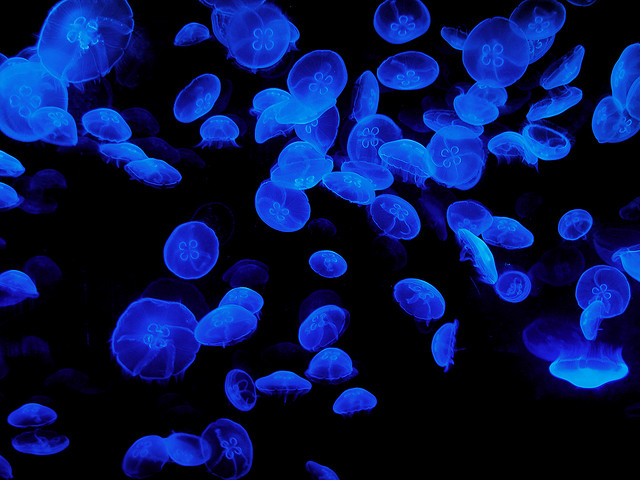Jellyfish outbreaks and their consequences appear to be on the increase around the world, and are becoming particularly relevant in the Mediterranean. No previous studies have quantified tourism losses caused by jellyfish outbreaks. We used a stated-choice questionnaire and a Random Utility Model to estimate the amount of time respondents would be willing to add to their journey, in terms of reported extra travel time, in order to reduce the risk of encountering jellyfish blooms in the Catalan coast. The estimation results indicated that the respondents were willing to spend on average an additional 23.8% of their travel time to enjoy beach recreation in areas with a lower risk of jellyfish blooms. Using as a reference the opportunity cost of time, we found that the subsample of individuals who made a tradeoff between the disutility generated by travelling longer in order to lower the risk of jellyfish blooms, and the utility gained from reducing this risk, are willing to pay on average €3.20 per beach visit. This estimate, combined with the respondents’ mean income, yielded annual economic gains associated with reduction of jellyfish blooms on the Catalan coast around €422.57 million, or about 11.95% of the tourism expenditures in 2012. From a policy-making perspective, this study confirms the importance of the economic impacts of jellyfish blooms and the need for mitigation strategies. In particular, providing daily information using social media applications or other technical devices may reduce these social costs. The current lack of knowledge about jellyfish suggests that providing this information to beach recreationists may be a substantially effective policy instrument for minimising the impact of jellyfish blooms.
Sergio Sastre
2015
PLoS ONE
Nunes PALD, Loureiro ML, Piñol L, Sastre S, Voltaire L, Canepa A (2015) Analyzing Beach Recreationists’ Preferences for the Reduction of Jellyfish Blooms: Economic Results from a Stated-Choice Experiment in Catalonia, Spain. PLoS ONE 10(6): e0126681.

